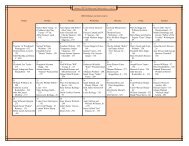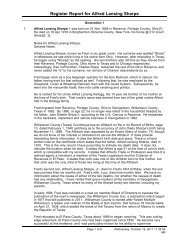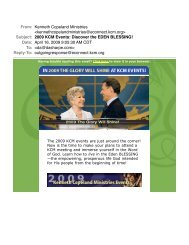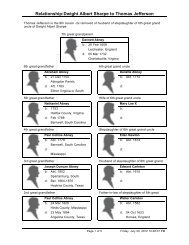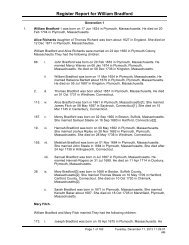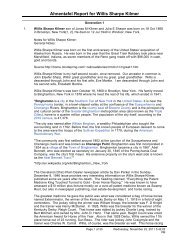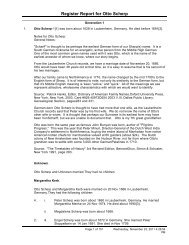POLITICAL SPEAKING TIPS - D. A. Sharpe
POLITICAL SPEAKING TIPS - D. A. Sharpe
POLITICAL SPEAKING TIPS - D. A. Sharpe
Create successful ePaper yourself
Turn your PDF publications into a flip-book with our unique Google optimized e-Paper software.
Political speaking tips, by D. A. <strong>Sharpe</strong><br />
11. Practice good grammar. For example: use personal pronouns correctly, avoid<br />
splitting infinitives and watch how you use prepositions. Keep in mind being<br />
well-prepared by planning your words ahead of time helps cement correct<br />
grammar. Asking someone to critique your presentation ahead of time can be<br />
helpful.<br />
Personal pronouns need to be used correctly: “The meeting was planned by<br />
Sally and me.” is correct. It is not correct to say “The meeting was planned by<br />
Sally and I.” It would be correct to say, “Sally and I planned the meeting.”<br />
Avoid splitting infinitives. Say, “My plan is not to allow contracts without<br />
open bidding.” Do not say, “My plan is to not allow contracts without open<br />
bidding.”<br />
A speaker should try to use "we" and "our" instead of "I" and "my" whenever<br />
possible.<br />
Never use a preposition to end a sentence with! As you can see, this is a<br />
humorous way to saying the rule, while demonstrating how not to say it.<br />
Watch how you use the word, “at.” Say, “I am presently at the campaign<br />
headquarters...” Don’t say, “I’ll be you don’t know where I’m at.” i.e. You<br />
could say, “I’ll bet you don’t know where I am.” Avoid the habit of "Ums”,<br />
“er” and buzz phrases like "don't ya know," "You know what I'm sayin" and<br />
"OK."<br />
9. A very important candidate’s statement which is controversial should first be<br />
written carefully, so that wording can be chosen wisely. Practice articulating<br />
that statement so that you will not be distracted. Keep in mind that it is good<br />
to cultivate the art of looking directly at individuals when possible. It is<br />
sometimes good to move around a little, to lean into the audience to focus on a<br />
particular person. Spread your focus to different individuals to be more<br />
inclusive. Good eye contact is one of the most valuable assets you can<br />
maintain.<br />
10. If you are provided a microphone, keep it close to your mouth. If it is<br />
stationary, you are limited in your effective movements. Try to see if they<br />
will allow you something that gives you move ability.<br />
11. Vary your pitch (highness and lowness of voice), pace (speak slower<br />
sometimes, and then a bit more quickly on "common phrases"), loudness<br />
(increasing volume is sometimes less effective than decreasing it: to say a<br />
word softly and suddenly will usually cause everyone to notice), body -<br />
stance, gesturing, facial direction (if you've been very still, move; if you've<br />
been moving, pause quietly in a posture; if you've been maintaining a nice,<br />
Page 2 of 5



